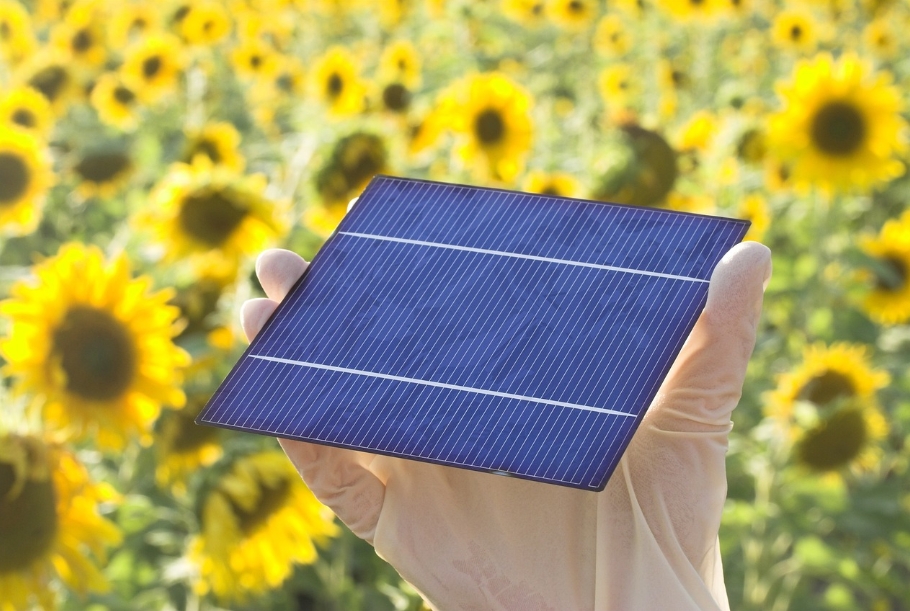TECH
Solar Panel Efficiency: How to Get the Most from Your System

Solar panels have become a popular solution for clean energy and cost savings, but optimising their efficiency is essential for real impact. Solar panel efficiency directly impacts how much energy is generated, and by maximising it, homeowners can achieve greater energy independence for homes. Efficient solar panels mean reduced electricity costs and minimal reliance on the grid. From maintenance tips to technology options, this guide dives into how to get the most out of solar panels, helping you maximise performance and make the most of your investment.
Understanding Solar Panel Efficiency
Definition of Solar Panel Efficiency
Solar panel efficiency means how much sunlight a panel converts into usable electricity. This efficiency, measured as a percentage, tells us how much power each panel can generate under optimal sunlight. Higher-efficiency solar panels generally cost more upfront but yield greater energy output, making them valuable over the long term. Efficiency depends on panel quality, location, weather, and upkeep. For anyone serious about getting the best results from solar panels, understanding this metric is crucial.
Types of Solar Panels and Their Efficiency Rates
Solar panels come in various types, each with unique efficiency rates. Monocrystalline panels are the most efficient, converting up to 22% of sunlight into energy, ideal for smaller roof spaces. Polycrystalline panels are slightly less efficient but more budget-friendly, offering 15–17% efficiency. Lastly, thin-film panels are lightweight and flexible but generally achieve 10–12% efficiency. Choosing the right type of solar panels depends on budget, space, and energy needs. Each type has pros and cons that suit different preferences.
Factors That Impact Solar Panel Efficiency
Environmental Factors
Environmental conditions heavily influence solar panels’ efficiency. Weather, for example, affects how much sunlight reaches your panels. Cloudy days reduce energy production, while extreme heat can decrease panel performance. Shading, whether from trees, buildings, or other structures, also limits sunlight exposure. By managing these factors—trimming trees or cleaning panels regularly—you can help solar panels function at their best. Climate-appropriate panels or positioning adjustments can help too, ensuring your solar panels deliver optimal energy output year-round.
System Components
The efficiency of solar panels is also affected by system components, including inverters, wiring, and batteries. Inverters are crucial for converting DC from solar panels into AC for home use, so a high-quality inverter is essential. Wiring quality and connectivity also impact efficiency, as poor wiring can cause energy losses. For those who store energy, reliable batteries maintain power availability during low sunlight hours. Regular checks of these components can sustain high performance and extend the lifespan of solar panels.
Angle and Orientation of Solar Panels
Proper angle and orientation play a massive role in solar panel efficiency. The ideal angle varies by location, allowing panels to capture the maximum amount of sunlight. For example, in the Northern Hemisphere, panels typically face south for optimal exposure. Seasonal adjustments can further improve efficiency. Angling panels to match the sun’s path means getting more sunlight during peak hours, increasing your energy output. Tools like solar trackers help optimise this alignment, maximising the efficiency of your solar panels.
Age and Quality of Solar Panels
Solar panels naturally lose efficiency over time. Most panels degrade at about 0.5–1% annually, which slightly lowers energy output each year. This makes initial panel quality a significant consideration. Investing in high-quality panels from reputable brands minimises degradation, maintaining high efficiency for decades. Over time, knowing when to upgrade or expand your system is essential. As your system ages, replacing older panels with newer, high-efficiency options keeps your solar panels producing effectively for years to come.
Best Practices for Maximising Solar Panel Efficiency
Regular Maintenance and Cleaning
Keeping solar panels clean is one of the simplest yet most effective ways to maintain efficiency. Dirt, debris, and snow can obstruct sunlight, lowering energy production. Experts recommend cleaning panels every six to twelve months, or more often in dusty areas. Using gentle methods—like rinsing with water and wiping with a soft cloth—preserves the panel surface. Professional services are an option for homeowners wanting extra thorough care. Routine cleaning ensures your solar panels capture as much sunlight as possible.
Installing a Solar Tracking System
Solar trackers help optimise energy capture by adjusting panels to follow the sun’s path. Single-axis trackers move along one axis, while dual-axis trackers provide even more movement, enabling higher energy output. Though they add cost, trackers significantly boost energy production for those with limited roof space. For homeowners maximising their solar panels’ efficiency, trackers are a worthwhile investment. By improving sunlight exposure, they help you get the best performance possible, especially on sunny days.
Using Energy-Efficient Appliances and Timing Usage
Synchronising energy use with peak solar production maximises the benefits of solar panels. Running appliances—like washing machines or dishwashers—during peak sunlight hours uses energy generated directly by your panels, reducing grid dependence. For homes with batteries, excess energy stored during the day can power appliances at night. Incorporating efficient appliances into your system also ensures you’re making the most of your energy. Optimising appliance timing is a practical, straightforward way to boost the effectiveness of your solar panels.
Monitoring Systems and Performance Analytics
Monitoring tools track solar panels’ performance, offering insights into efficiency levels and alerting you to potential issues. These systems show real-time data, helping homeowners spot energy drops or malfunctions early on. Many apps and software options are available for DIY monitoring, while professional services offer more detailed analytics. By using these insights, homeowners can make proactive adjustments, keeping their solar panels running at peak efficiency. Regular monitoring means fewer surprises and steady energy production.
Common Mistakes to Avoid for Solar Efficiency
Poor Installation Practices
Hiring a certified installer is essential, as improper installation can reduce efficiency. Panels must be positioned correctly, with optimal angles and reliable wiring. Some homeowners overlook orientation or try DIY installation, often resulting in less effective setups. A professional ensures that your solar panels are installed at the right tilt, securely connected, and ready for long-term energy production. Investing in quality installation avoids future issues, keeping your panels productive for years to come.
Neglecting Routine Maintenance
Skipping maintenance is a common but costly mistake. Dirt, leaves, and even bird droppings can accumulate on solar panels, blocking sunlight and reducing output. Routine cleaning and inspection are easy ways to prevent efficiency loss. Periodic professional checks also help catch issues early, from worn-out wiring to inverter malfunctions. Neglecting these tasks may lower your panels’ efficiency over time, resulting in missed energy savings. Consistent upkeep ensures your solar panels perform well season after season.
Overloading or Undersizing the System
Sizing your solar panel system accurately is key to efficiency. Some homeowners install systems too large for their needs, which can reduce ROI. Conversely, undersized systems won’t generate enough energy, leading to greater grid dependency. Calculating your home’s energy needs beforehand helps in choosing the right number and type of solar panels. Right-sizing ensures balanced performance, allowing your solar panels to meet demand without wasting potential. An efficient system size maximises both savings and sustainability.
Calculating and Improving Your System’s ROI with Solar Panels
How to Calculate Your Solar Panels ROI (Return on Investment)
Calculating ROI helps you understand how well your solar panels meet your energy needs relative to costs. ROI considers installation cost, energy savings, and incentives. The formula involves dividing net energy savings by the total investment cost. Variables like local utility rates, the number of sunlight hours, and efficiency influence your return. Knowing your ROI also helps track how quickly your investment pays off, providing valuable insight into long-term savings from solar panels.
Steps to Increase ROI through Solar Panel Efficiency
Boosting efficiency increases the ROI of solar panels by generating more energy per square foot. Regular cleaning, seasonal angle adjustments, and high-quality inverters are all easy ways to enhance output. Battery storage extends ROI by capturing surplus power for nighttime use, reducing grid reliance. Additionally, exploring local rebates or tax incentives lowers upfront costs, making solar panels more affordable. Taking these steps makes your investment work harder, delivering more value over time.
The Future of Solar Panel Efficiency
Technological Advancements in Solar Panels
Solar technology is advancing rapidly, promising new ways to boost panel efficiency. Bifacial panels, for instance, absorb sunlight on both sides, generating more power. Emerging materials like perovskite cells have the potential to double solar panels’ efficiency. Other innovations, such as quantum dots, offer exciting possibilities for lightweight, flexible solar panels. As these technologies become more accessible, homeowners can expect even higher efficiency levels, making solar panels a long-term powerhouse in renewable energy.
Trends in Efficiency Standards for Solar Panels
Global efficiency standards for solar panels are rising, encouraging manufacturers to produce more efficient models. Higher benchmarks reflect both improved technology and consumer demand for effective solar solutions. Organisations worldwide are setting ambitious targets, pushing for more efficient solar panels in residential and commercial markets. These trends signal that solar panels will keep evolving, providing increasingly efficient, reliable energy solutions. By staying informed, homeowners can ensure their systems remain cutting-edge.
Recap
Maximising solar panel efficiency involves strategic planning and ongoing maintenance. By keeping panels clean, adjusting their angle for optimal sunlight, and monitoring performance, homeowners can ensure their solar panels run efficiently for years. Investing in quality components, such as inverters and batteries, also boosts output and minimises dependency on grid power. As solar technology advances, staying updated helps homeowners benefit from new efficiency gains. Ultimately, efficient solar panels not only cut costs but also support energy independence, a crucial step toward sustainable living and a more resilient energy future.











